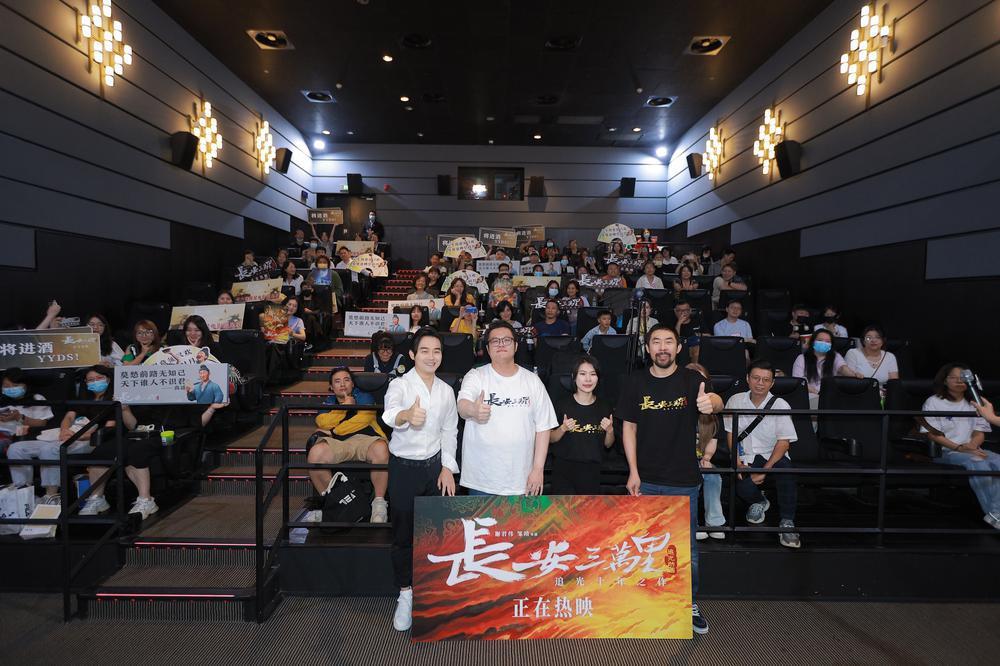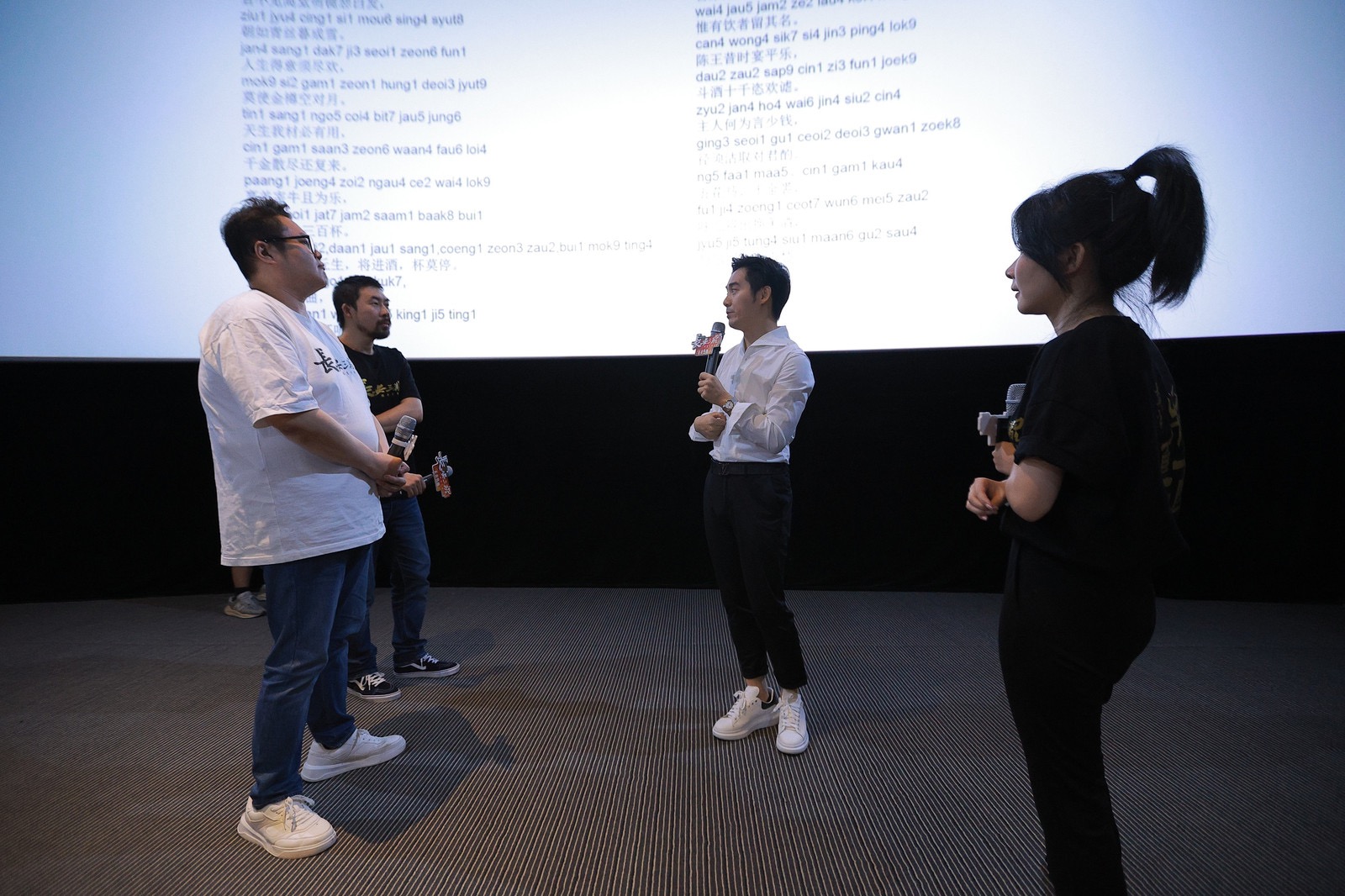
The animated film "Chang An" is garnering enthusiasm for Tang poetry nationwide, having already smashed box office records with a gross income exceeding 1.3 billion yuan. On the evening of July 25th, the film staged a roadshow in Guangzhou, featuring post-screening interactions between the audience and the film's director Xie Junwei, co-director Zou Jing, and producer Song Yiyi.

In Guangdong, the film's ending credits, which see a Cantonese recitation of Tang poetry, have been a pleasant surprise for audiences. The creators shared, "Right from the outset, we knew we will have it in Cantonese." The three, along with renowned Cantonese broadcaster Zhang Chi, studied how to recite " Invitation to Wine" in Cantonese, presenting a sincere attitude in their learning. The audience played the role of "assistant teachers". Soon the screening room resonated with the recitation of poetry.
"Tang poetry is an intrinsic part of every Chinese person’s identity, regardless of where we were born, we all know a few Tang poems," explained director Xie Junwei. The film’s end credits feature voices of various regions, dialects, and ages reciting Tang poetry, a design choice made to underscore this cultural inheritance.
Xie Junwei revealed that the choice to recite Li Bai's "Midnight Songs - Autum" in Cantonese was due to its rhythm. "When we tried reciting the line 'Moonlight is spread all over the capital. The sound of beating clothes far and near.' in various dialects, we found that it sounded the most rhythmic in Cantonese. It was simply too beautiful to hear."

The roadshow was graced by the presence of famous Cantonese broadcaster Zhang Chi, who conducted live teaching on "ancient Chinese terms that are preserved in Cantonese" Subsequently, he taught the creators how to recite Li Bai's "Invitation to Wine" in Cantonese. He pointed out that the word "fu"("复" in Chinese) in the line ","Rushing into the sea and never come back?"("奔流到海不复回" in Chinese) has three different pronunciations in Cantonese, which in the poem is not the same as in daily life. After learning, the creators expressed their admiration for the beauty of Cantonese. "We're just beginners, but we'll continue to practice."
《长安三万里》广州路演,全场粤语诵读《将进酒》
正在热映的动画电影《长安三万里》7月25日晚在广州举行“天下谁人不识君”广州主题路演,导演谢君伟、邹靖,制片人宋依依与观众映后交流。
《长安三万里》票房目前已突破13亿元,在全国各地都掀起了一股唐诗热。在广东地区,影片片尾的粤语吟诗也给了观众很大惊喜。对此,几位主创透露:“最初创作时,我们就一定要加入粤语。”当天,三人还跟着粤语主播张弛学习用粤语读《将进酒》,学习态度认真。全场观众则当起了“助教”,影厅内响起朗朗诵诗声。
“唐诗融在每一个中国人的血液里。无论我们生在哪里,都会背几首唐诗。”导演谢君伟解释,片尾设计了不同地区、方言、年龄的声音吟诵唐诗,正是想体现这种文化的传承。
谢君伟透露,之所以选择用粤语朗诵李白的《子夜吴歌·秋歌》,是因为当时找了各地方言来读那句“长安一片月,万户捣衣声”时,发现粤语念出来最有韵律感,“真的太好听了”。
当天,知名粤语主播张弛来到路演,就“粤语中保留了哪些古汉语的用词”进行现场教学。之后,他又教三位主创用粤语朗诵李白的《将进酒》。其间他特别指出,“奔流到海不复回”的“复”,在粤语里有三种发音,其在诗中的发音跟日常发音并不相同。
一番学习后,几位主创感叹,粤语实在太好听,“我们还没入门,以后要继续练习”。
文|羊城晚报全媒体记者 李丽
译|陈萱
责编 | 王楠
校对 | 周勇
-
Chengdu Universiade imminent, boosting tourism in Sichuan and Chongqing
2023-07-27 22:59:36 -
"Achilles's Flower Crown" premieres: Have we forgotten compassion and love?
2023-07-26 23:23:59 -
Guangzhou emerges as a hot city for Citywalks, winning the hearts of young urbanites
2023-07-26 23:23:22 -
Curtain up for ancient-style night tour at Nansha, Guangzhou
2023-07-26 23:22:09






